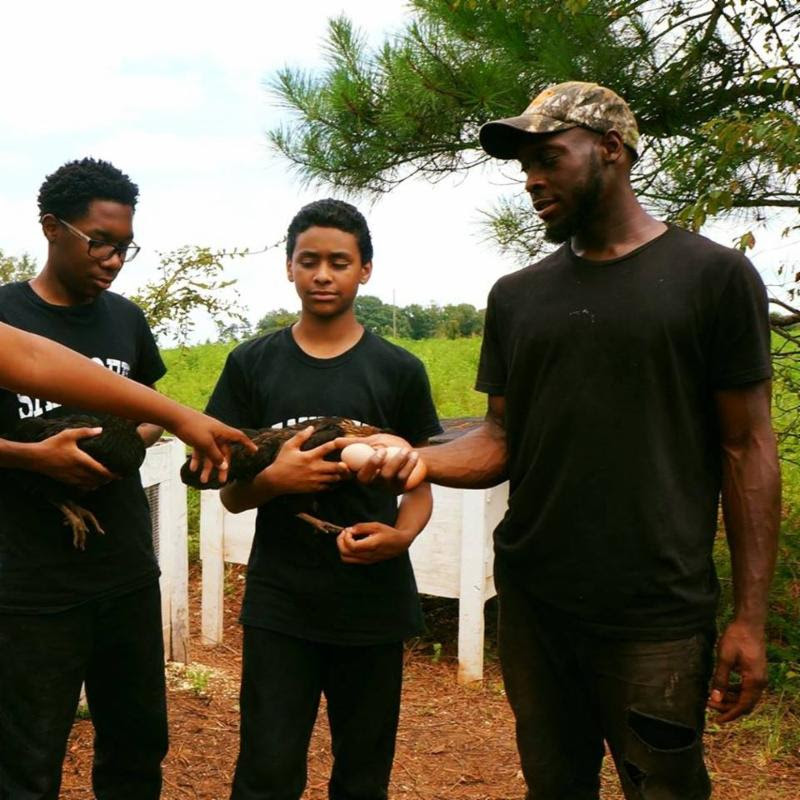Mr. Kamal Bell, teacher and farmer, working with students at Sankofa Farms in Durham, NC. Mr. Bell recently presented at Farmer Foodshare on understanding the legacy of Race in Farming and brought the statistics and sentiments below to our community's attention. "In order to move forward, we must remember our past..."
By Alicia Lee, Farmer Foodshare Bonner Leader Intern from UNC
In 1920, African Americans owned 1 out of every 7 farms. By the end of the century, this number had dropped to only 1 out of 100 farms. Here’s another set of shocking stats: in 2012, 2% of all farmers in this country were African American. In 1924, that number was 14%. Currently, African American farmers represent only 0.4% of overall agricultural sales. What’s going on? Why are African American farmers disappearing?
One reason for the drastic number drop is that African American farmers were systematically denied or delayed getting loans from the United States’ Department of Agriculture (USDA), which would have helped them start, grow, or even just hold on to their farms. In 1997, North Carolina native Tim Pigford and 400 other African American farmers formed a class action lawsuit against the USDA. They won, which resulted in the largest payout in U.S. history, nearly $2.3 billion. This not even close to rectifying the centuries of racial discrimination in agriculture--not only are many participants are still waiting on their payouts, but so many farms have already been lost permanently.
At Farmer Foodshare’s core is an understanding that our current food system is broken. Several of our programs, such as the Donation Stations and Food Ambassadors, focus on the disconnect between people who grow food and those who need food. But the people who grow food in America are also struggling in general, as large farms continue to grow and force smaller farmers out of the market. This reality of being pushed out was experienced doubly so by African American farmers as they had to contend with competition from mega-farms and racism in the USDA itself as previously discussed.
In honor of Black History Month, Farmer Foodshare wanted to highlight the issue of racism in agriculture, and open the discussion on how to make improvements. We strive to intentionally support farmers of color to help connect them with more buyers, especially through our wholesale market. By broadening farmers’ consumer base, we hope to be able to support African American farmers and keep them in the market.
Want to help? We have a few ways for you to get involved too!
If you would like to read more about this history of racial discrimination in farming, check out these articles on the history of racism in the USDA and what happened to African American farmers. If you believe in fresh food for all and in supporting the local farmers who grow that food, click here to take our online volunteer orientation to learn more and get started volunteering.
Read more:
SAAFON Woks to Restore Land Justice for Black Farmers in the South
Food System Racial Equity Assessment Tool: A Facilitation Guide
Local Initiatives:

